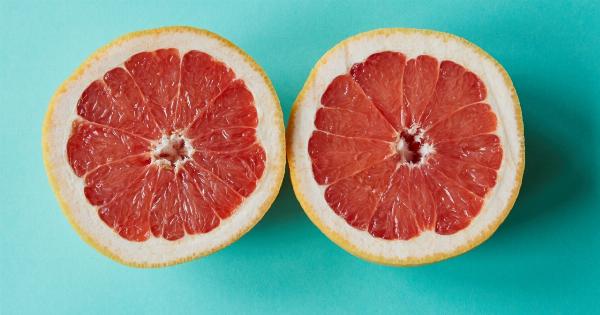Kidney stones are a common condition that affect millions of people worldwide. These small, hard deposits can form in the kidneys, ureters, and bladder, causing severe pain, discomfort, and other complications.
Fortunately, there are several ways to prevent kidney stones from forming and to reduce your risk of developing this condition. In this guide, we will explore the different methods that you can use to avoid kidney stones and keep your urinary system healthy and functioning properly.
What are Kidney Stones?
Kidney stones are solid mineral deposits that form in the kidneys, ureters, and bladder. They can range in size from a tiny speck to several millimeters in diameter, and they can cause a range of symptoms depending on their location and size.
Symptoms of kidney stones may include:.
- Severe pain in the back, side, or abdomen
- Blood in the urine
- Nausea and vomiting
- Fever and chills (if an infection is present)
What Causes Kidney Stones?
The exact cause of kidney stones is not always clear, but several factors can contribute to their development. Some of the most common causes of kidney stones include:.
- Dehydration, which can cause urine to become concentrated and allow minerals to crystalize
- A diet high in salt, sugar, and animal protein
- A family history of kidney stones
- Inflammatory bowel disease or other conditions that affect the digestive system
- Certain medications that can increase the risk of stone formation
How to Avoid Kidney Stones
Although kidney stones can be a painful and uncomfortable condition, there are several ways to prevent their formation and reduce your risk of developing them. Here are some proven methods for avoiding kidney stones:.
1. Drink Plenty of Water
One of the most effective ways to prevent kidney stones is to stay hydrated. Drinking plenty of water can help to flush minerals and other substances out of the body, preventing them from crystalizing and forming stones.
Experts recommend drinking at least 8-10 glasses of water per day, or more if you are physically active or live in a hot climate.
2. Reduce Your Salt Intake
Eating a diet high in salt can increase your risk of developing kidney stones. Salt contains sodium, which can cause the kidneys to excrete more calcium, leading to the formation of stones.
To reduce your salt intake, try to avoid processed foods, add less salt to your meals, and opt for fresh fruits and vegetables instead of salty snacks.
3. Eat a Balanced Diet
A diet that is balanced in all nutrients can help to prevent kidney stones. Eating fruits and vegetables can help to increase urine volume and decrease the concentration of minerals that can form stones.
Also, eating a diet that is low in animal protein can reduce the risk of developing stones.
4. Limit Your Sugar Intake
Consuming too much sugar can also increase the risk of kidney stones. Sugar can cause the body to excrete more calcium and other minerals, which can lead to stone formation.
To reduce your sugar intake, try to avoid sugary drinks, candies, and desserts, and choose more wholesome options.
5. Get Enough Calcium
Although it might seem counterintuitive, getting enough calcium can prevent kidney stones from forming. Calcium binds to oxalate in the intestines, preventing it from being absorbed into the bloodstream and excreted in the urine.
To ensure you’re getting enough calcium, eat calcium-rich foods like milk, cheese, and leafy green vegetables.
6. Exercise Regularly
Regular physical activity can also prevent kidney stones by promoting healthy circulation and urinary function.
Exercise can help to reduce the amount of calcium, oxalate, and other minerals in the urine, as well as decreasing the risk of inflammation and infection in the urinary tract.
When to See a Doctor
If you experience any symptoms of kidney stones, it’s important to see a doctor right away. They can provide a proper diagnosis and recommend treatment options to help you manage your condition.
In some cases, kidney stones may need to be removed surgically, although most stones can pass on their own with enough hydration and some home remedies.
Conclusion
Kidney stones can be a painful and uncomfortable condition that can cause a range of symptoms and health complications.
However, by following the tips outlined in this guide, you can reduce your risk of developing kidney stones and keep your urinary system healthy and functioning properly. Remember to stay hydrated, eat a balanced diet, and limit your intake of salt and sugar to keep your body in top shape.






























